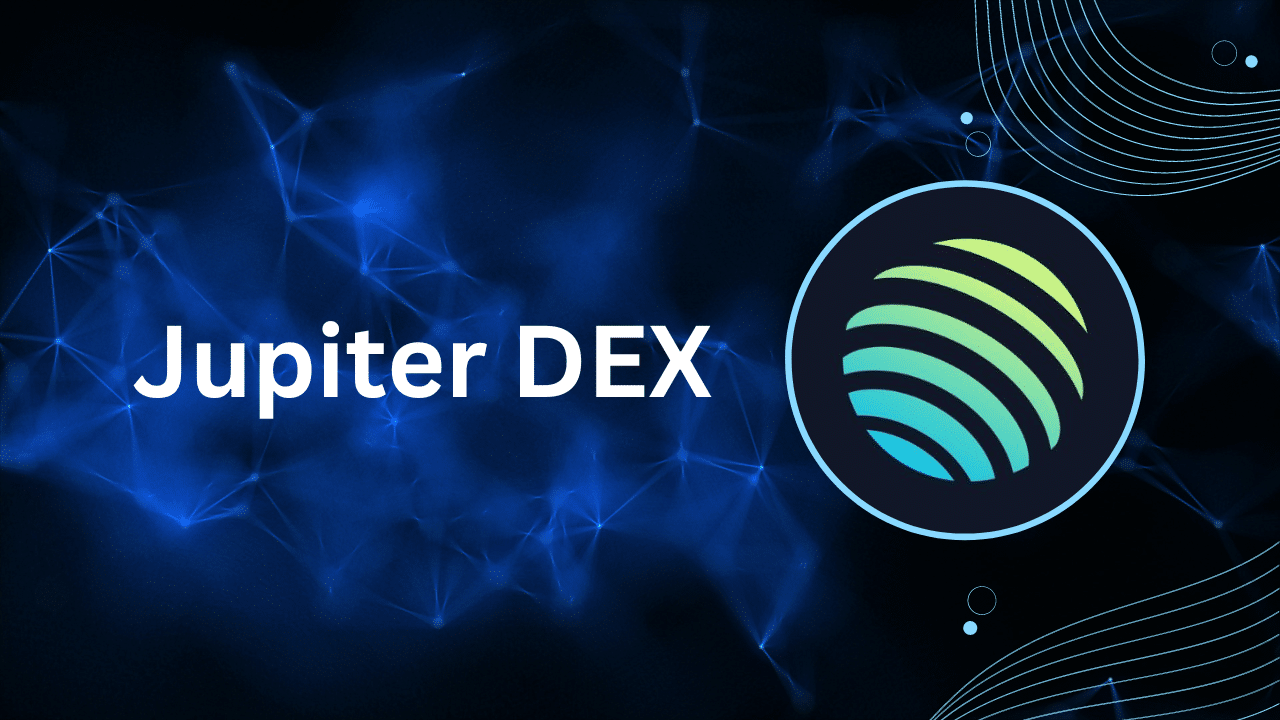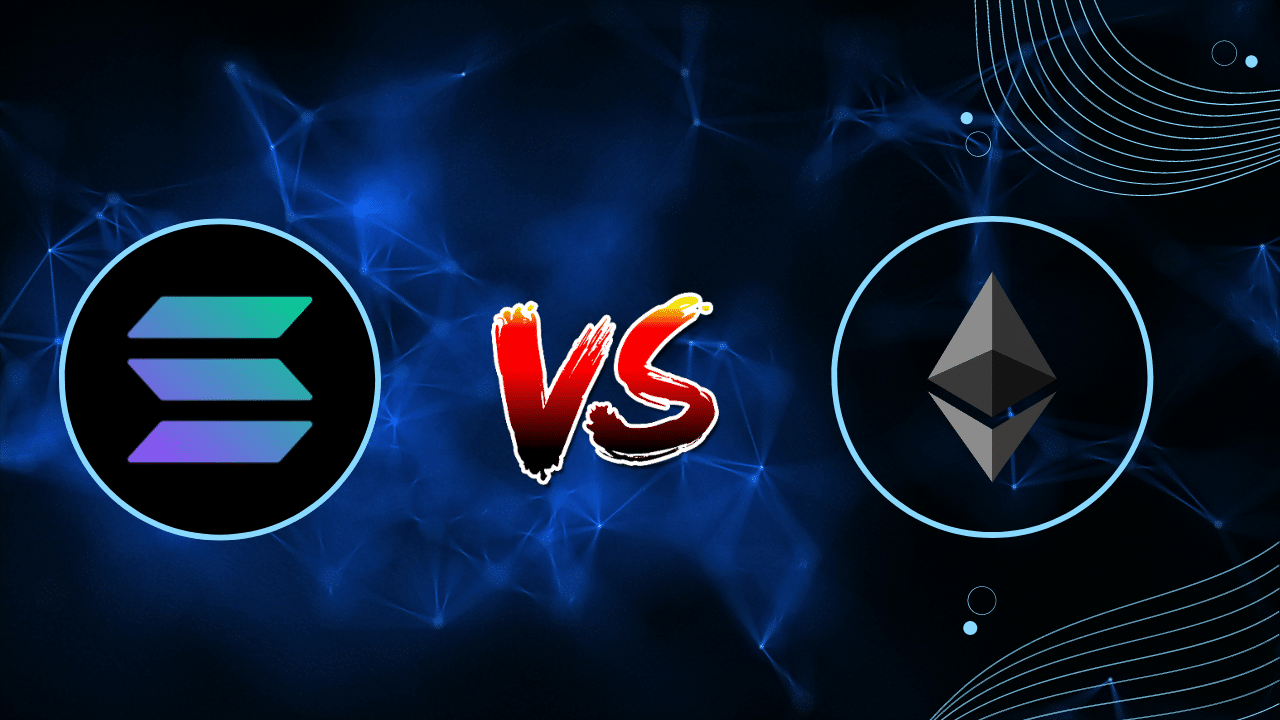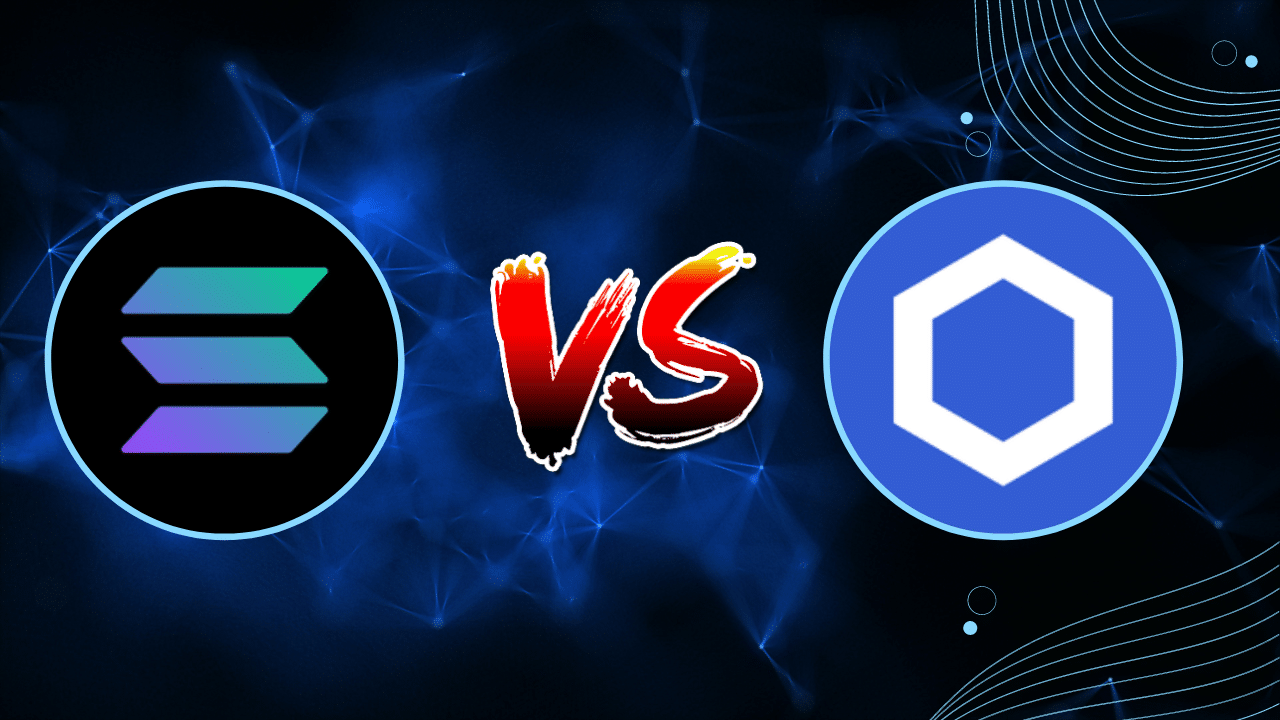Contents
|
|
Jupiter DEX’s innovative approach not only enhances accessibility but also prioritizes security and transparency. Stay tuned as we delve into the features, benefits, and potential impact of this game-changing platform in our upcoming posts. Get ready to explore a universe of possibilities with Jupiter DEX!
Contents
Key Takeaways
-
Understanding Jupiter’s functionality is crucial for users to make the most of its features and benefits.
-
Exploring the origins of Jupiter provides insights into its development and mission, enhancing users’ appreciation of the platform.
-
Identifying Jupiter’s restricted countries helps users understand the platform’s global accessibility and any limitations they may encounter.
-
Analyzing Jupiter’s fee structure enables users to make informed decisions about transactions and budgeting on the platform.
-
Unveiling JUP airdrops on Solana-based Jupiter presents an opportunity for users to participate and benefit from the airdrop program.
-
Tracking the rally in JUP and WEN prices allows users to stay updated on market trends and potential investment opportunities.
Understanding Jupiter and Its Functionality
Fast and Low-Cost Transactions
Jupiter DEX, a decentralized exchange (DEX) operating on the Solana blockchain, is revolutionizing the way digital assets are traded. The platform’s fast and low-cost transactions make it an attractive option for traders looking to capitalize on market opportunities without being hindered by high fees or slow processing times. With traditional exchanges often plagued by sluggish transaction speeds and exorbitant fees, Jupiter’s commitment to providing swift and cost-effective transactions sets it apart in the world of decentralized trading.
The speed of transactions on Jupiter DEX allows users to swiftly execute trades, taking advantage of fleeting market movements that could potentially yield significant profits. Furthermore, the low costs associated with using the platform enable traders to maximize their returns by minimizing expenses typically incurred when conducting transactions on other exchanges. This combination of rapid transaction speeds and affordability positions Jupiter as a formidable player in the realm of decentralized finance.
Jupiter’s dedication to ensuring fast and low-cost transactions isn’t just about convenience; it also aligns with the broader ethos of decentralization within blockchain technology. By prioritizing efficiency and affordability, Jupiter empowers users to engage in seamless trading activities while upholding the principles that underpin decentralized finance—namely accessibility, inclusivity, and transparency.
Seamless Trading Experience
At its core, Jupiter aims to offer a seamless trading experience for digital asset enthusiasts seeking an intuitive yet powerful platform for executing trades. In contrast to some conventional exchanges that can be convoluted or cumbersome for newcomers to navigate effectively, Jupiter places great emphasis on user-friendly interfaces and streamlined processes designed to enhance overall usability.
This commitment translates into features such as straightforward account setup procedures, clear instructions for executing trades, real-time market data visualization tools—all contributing factors that collectively contribute towards creating a more accessible environment for traders across varying levels of expertise. By championing simplicity without sacrificing functionality or depth of features,
Jupiter has managed not only attract seasoned traders but also entice individuals who may have previously found themselves intimidated by complex exchange platforms.
Exploring the Origins of Jupiter
Addressing Limitations
Jupiter DEX, a decentralized exchange (DEX), was developed to tackle the shortcomings of existing decentralized exchanges. These platforms often face issues related to speed and efficiency, affecting the overall user experience. For instance, some DEXs struggle with slow transaction times, high gas fees, and network congestion.
The team behind Jupiter recognized these challenges and set out to create a platform that prioritizes speed, efficiency, and an intuitive user interface. By addressing these limitations, Jupiter aims to offer users a seamless trading experience while eliminating common frustrations associated with traditional DEXs.
To illustrate further, imagine trying to make a trade on a decentralized exchange only for the transaction to take an extended period due to network congestion or high gas fees. With Jupiter DEX’s focus on speed and efficiency, such issues are minimized or eliminated altogether.
High-Performance on Solana Network
The development of Jupiter is closely linked to the need for a high-performance decentralized exchange on the Solana network. As one of the fastest-growing blockchain ecosystems, Solana offers unparalleled scalability and low transaction costs. However, existing DEXs built on other networks may not fully leverage these advantages.
Innovative Approach to DEX Functionality
Jupiter’s introduction into the world of DeFi sparked widespread interest due to its unique features and functionalities. Unlike traditional centralized exchanges, Jupiter DEX operates without intermediaries or central authorities, providing users with greater control over their assets and transactions. This decentralized nature aligns with the core principles of blockchain technology—transparency, security, and autonomy.
Moreover, Jupiter stands out for its efficient trading mechanisms facilitated by cutting-edge technology. The platform’s architecture enables swift transaction processing and seamless liquidity provision while maintaining robust security measures. As a result, users can engage in diverse trading activities with enhanced speed and reliability.
In addition to these technical aspects, Jupiter also prioritizes user accessibility through intuitive interfaces and comprehensive support systems. This dedication ensures that both experienced traders and newcomers can navigate the platform effortlessly while accessing essential resources for informed decision-making.
Identifying Jupiter’s Restricted Countries
Regulatory Considerations
Jupiter DEX, while accessible to many, is subject to restrictions for users from certain countries. These limitations are not arbitrary but are enforced due to regulatory considerations. The platform must adhere to legal requirements in specific jurisdictions.
To comply with international regulations governing cryptocurrency trading, Jupiter DEX imposes restrictions on users from particular countries. This ensures that the platform operates within the boundaries of the law and maintains compliance with relevant regulatory frameworks.
The imposition of these restrictions serves a critical purpose in ensuring that Jupiter DEX remains aligned with legal stipulations related to cryptocurrency trading across different regions globally. For example, some countries have stringent laws regarding financial transactions involving digital assets, necessitating platforms like Jupiter DEX to enforce access limitations based on geographical location.
Impact on Users
For individuals residing in restricted countries, accessing Jupiter DEX may be challenging or even impossible due to these regulatory constraints. They might encounter barriers preventing them from participating in the platform’s services and utilizing its features for cryptocurrency trading activities.
This limitation can significantly impact individuals who wish to engage in decentralized finance (DeFi) through Jupiter DEX, as they may find themselves excluded from leveraging the benefits offered by this innovative platform. As a result, potential opportunities for investment diversification and participation in DeFi ecosystems could be inaccessible for those affected by these restrictions.
-
Pros:
-
Ensures compliance with diverse international regulations.
-
Upholds legal standards pertaining to cryptocurrency trading.
-
Cons:
-
Limits accessibility for users residing in restricted countries.
-
Restricts participation in decentralized finance initiatives for impacted individuals.
Examining Supported Coins on Jupiter
Diverse Range
Jupiter DEX supports a diverse range of cryptocurrencies and digital assets for trading. This means that users have access to a wide variety of options. From popular tokens like Bitcoin and Ethereum to emerging projects, there is something for everyone.
Jupiter facilitates the exchange of both popular tokens and those from emerging projects in the cryptocurrency space. For instance, users can trade established coins such as Litecoin, Ripple, or Cardano while also having the opportunity to invest in newer altcoins with growth potential.
Wide Selection
Users have access to a wide selection of supported coins on Jupiter for their trading and investment needs. This allows individuals to diversify their portfolios by investing in different types of cryptocurrencies based on their risk tolerance, investment goals, and market trends.
For example, if someone prefers stable investments with lower volatility, they might opt for well-established coins like Bitcoin or Ethereum. On the other hand, those looking for higher-risk investments with potential high returns may explore newer projects supported by Jupiter.
Analyzing Jupiter’s Fee Structure
Transparent Fees
Jupiter DEX, unlike traditional centralized exchanges, implements a transparent fee structure for trades. This means that traders have clear visibility into the fees they will incur when conducting transactions on the platform. This transparency is crucial as it allows traders to make informed decisions about their trading activities without any hidden surprises.
The transparent fee structure also promotes trust and confidence among users, as they can confidently engage in trades knowing exactly what fees they will be charged. For example, if a trader plans to execute multiple trades within a specific period, having knowledge of the exact fees enables them to calculate potential costs accurately.
Jupiter DEX’s commitment to transparency ensures that traders are not caught off guard by unexpected charges or deductions, fostering an environment of fairness and predictability within the platform.
Competitive Fees
Traders utilizing Jupiter DEX can expect competitive fees compared to those imposed by centralized exchanges. These competitive rates are designed to attract traders who seek cost-effective solutions for their trading activities while still enjoying access to a wide range of digital assets.
For instance, lower fees may entice new traders who are exploring different platforms for executing their trades. Seasoned traders may find these competitive fees appealing as they seek ways to optimize their trading expenses and maximize profits from their investment strategies.
By offering competitive fees, Jupiter aims to position itself as an attractive alternative for both novice and experienced cryptocurrency traders seeking economical options with robust features and functionalities.
Incentivizing Liquidity Provision
One of the key aspects of Jupiter DEX’s fee structure is its design aimed at incentivizing liquidity provision and active participation in the ecosystem. By providing incentives for liquidity provision through favorable fee structures, Jupiter encourages users to contribute significantly towards maintaining healthy trade volumes and market depth on the platform.
This approach benefits all participants in the ecosystem—traders benefit from improved liquidity which enhances trade execution efficiency while liquidity providers receive rewards or reduced fees for contributing assets that facilitate smooth market operations.
Unveiling JUP Airdrops on Solana-Based Jupiter
What are JUP Airdrops?
Jupiter’s native token, JUP, is distributed to its community members through a process known as airdrops. These airdrops occur periodically and serve as a way to reward the platform’s active and loyal participants. Essentially, if you hold JUP tokens on the Solana-based Jupiter platform, you become eligible for these periodic airdrops.
Airdrops are an integral part of fostering community engagement within the Jupiter ecosystem. By distributing tokens to engaged community members, it incentivizes participation and encourages users to remain actively involved in the platform.
The system of airdropping JUP tokens is designed not only as a means of distribution but also as a strategy for building and maintaining an enthusiastic and dedicated user base.
Benefits of Participating in JUP Airdrops
Participating in JUP airdrops offers several benefits for token holders on the Solana-based Jupiter platform:
-
Rewards: A primary benefit is that it rewards loyal participants who hold JUP tokens.
-
Community Engagement: It fosters active involvement from community members by providing them with incentives.
-
Incentivizing Participation: The prospect of receiving free tokens encourages users to stay engaged with the platform.
For instance, let’s consider an analogy where receiving an unexpected gift can bring joy and excitement. In this context, participating in JUP airdrops can be likened to receiving such surprise gifts – it creates enthusiasm among users while rewarding their loyalty at the same time.
Clearing the Air on JUP Airdrops by Jupiter Co-Founder
Addressing Common Queries
The Jupiter co-founder has taken the initiative to address common queries and misconceptions surrounding JUP token airdrops. This is crucial for community members who may be unclear about how these airdrops function. For instance, many individuals might wonder why a project like Jupiter conducts airdrops in the first place.
Understanding the rationale behind these distributions can help community members grasp their significance and potential impact. By shedding light on this, the co-founder provides valuable insights that contribute to enhancing transparency within the community.
The co-founder’s explanations also serve as an opportunity for individuals to gain clarity on specific aspects of JUP token airdrops that they might find confusing or ambiguous. This proactive approach fosters an environment where users are well-informed and equipped with accurate knowledge about JUP token airdrops.
Insights from Co-Founder
Insights from the co-founder of Jupiter offer invaluable perspectives on both the purpose and distribution process of JUP airdrops. These insights provide community members with detailed information about why these distributions are conducted, along with how they are executed.
For example, understanding how JUP token airdrops align with Jupiter’s broader objectives can help community members comprehend their significance in driving adoption and engagement within its ecosystem. Gaining insight into the distribution process itself enables individuals to understand how tokens are allocated during each respective drop.
Tracking the Rally in JUP and WEN Prices
Market Dynamics
The Jupiter Decentralized Exchange (DEX) has witnessed remarkable movements in the prices of its native tokens, JUP and WEN, over a specific period. These fluctuations are influenced by various factors within the cryptocurrency market. The overall sentiment, demand-supply dynamics, and market cap play pivotal roles in determining the price rallies observed for these tokens.
Market cap is a crucial metric that reflects the total value of a cryptocurrency.Changes in their market caps directly impact their prices. For instance, an increase in market cap often leads to higher token prices due to heightened investor interest and perceived value. Conversely, a decrease can result in price corrections as investors may perceive lower potential returns.
Investors closely monitor these developments as they provide insights into prevailing market sentiments and potential investment opportunities. By analyzing historical price data alongside market dynamics such as trading volumes and liquidity levels, traders can make informed decisions about entering or exiting positions related to JUP and WEN tokens.
Key Factors Influencing Price Movements
Several key factors contribute to the noteworthy price movements experienced by JUP and WEN tokens within the specified timeframe. One influential factor is community engagement through events like airdrops or partnerships announced by Jupiter’s team members or co-founders.
For example:
-
Partnerships with other blockchain projects often lead to increased visibility for both JUP and WEN tokens within the larger crypto community, potentially driving up demand.
Furthermore, technological advancements or upgrades implemented on Jupiter DEX can significantly impact token prices. The introduction of new features designed to enhance user experience or improve security measures tends to positively influence investor confidence surrounding JUP and WEN tokens.
Closing Thoughts
So, there you have it – a deep dive into the world of Jupiter and all its intricacies. From its origins to the supported coins, fee structure, and even the exciting JUP airdrops, we’ve covered it all. Now that you’re equipped with this knowledge, why not take a leap and explore the opportunities Jupiter presents? Whether it’s tracking the rally in JUP and WEN prices or delving into the restricted countries, there’s a whole universe waiting for you to uncover. So, what are you waiting for? Let’s blast off and make the most of what Jupiter has to offer!
Frequently Asked Questions
What is the functionality of Jupiter?
Jupiter is a decentralized exchange (DEX) that allows users to trade various cryptocurrencies without relying on a central authority. It provides a platform for peer-to-peer transactions, offering liquidity and enabling seamless trading experiences.
When was Jupiter launched?
Jupiter was launched, aiming to provide an accessible and efficient environment for cryptocurrency trading.
Which coins are supported on Jupiter?
Jupiter supports a wide range of cryptocurrencies, providing users with diverse options for trading and investment opportunities. The platform continually expands its list of supported coins to cater to evolving market demands.
What are JUP Airdrops on Solana-Based Jupiter?
JUP Airdrops refer to the distribution of JUP tokens to holders within the Solana-based Jupiter ecosystem. These initiatives aim to incentivize participation and engagement while fostering community growth and involvement in the platform’s development.
How can I track the rally in JUP and WEN prices?
You can monitor the price movements of JUP and WEN tokens through various cryptocurrency tracking platforms or directly via reputable exchanges where these tokens are listed. Keeping an eye on market trends can help you make informed decisions regarding your investments.








